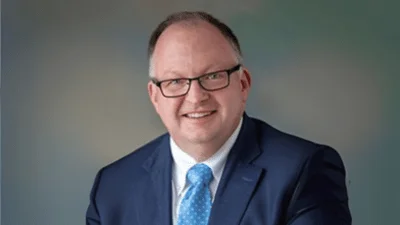Illinois Department of Children and Family Services Institutional Review Board met Sept. 26.
Here are the minutes provided by the board:
ON VIDEO
David Fox
Dr. Margaret Scotellaro
Robin LaSota
Tami Fuller
Anmarie Brandenburg
Lina Millett
Maureen Jones
EXCUSED Jennifer Eblen-Manning
Verletta Saxon
CALL TO ORDER
David Fox called the meeting to order at 2:03 p.m. A quorum was present.
APPROVAL OF MINUTES
MOTION: Margaret Scotellaro made a motion to approve the minutes August 22, 2023.
Tami Fuller seconded the motion and a unanimous vote from the remaining board members carried the motion.
FOLLOW UP
Sue Pickett. Metro East Illinois Intact Family Recovery (MIL IFR) Program Evaluation.
The questions raised by the board at the meeting were sent to the researcher for response. The board felt that the research sufficiently addressed each concern and provided more clarity.
MOTION: Jennifer Eblen-Manning motioned to approve the proposal.
Verletta Saxon seconded the proposed motion and a unanimous vote from the remaining board members carried the motion.
Dana Weiner. Illinois State Board of Education Mental Health Scan – Youth Perspective.
The board presented questions regarding the dissemination of the report back to DCFS audiences and including DCFS in the text promotion. They requested that if appropriate, there is a request that the following be added: “Please join the Illinois State Board of Education (ISBE), Illinois Department of Children and Family Services (DCFS), and Chapin Hall for a virtual listening meeting about mental and behavioral health screening of students in schools. The researcher responded that the material collected in the session will be aggregated with other input from youth, families, and school personnel as part of the ISBE report due to the legislature on recommendations for universal MH screening. The report will be publicly available and will be provided to DCFS. For confidentiality purposes, they did not intend to break out the DCFS youth input in a separate section but rather to combine it with input received from youth and parents across the state. They also indicated that they would add the suggested phrase if the IRB preferred.
MOTION: Maureen Jones motioned to approve the proposal.
Tami Fuller seconded the proposed motion and a unanimous vote from the remaining board members carried the motion.
NEW PROPOSALS
Amy Dworsky. Comparing LifeSet to Traditional Extended Foster Care Case Management
Program has been evaluated before in Illinois. Scope is set for 10 LifeSet case specialists. 20 young adults who have received services. Interview protocol looks reasonable – as these are thoughtful implementation support questions. Same designated security practice – gift card compensation for the youth and not for the case specialists. Asking for a waiver of written consent and asking for verbal consent. Approved by the University of Chicgao for that waiver.
Listed one of the risks that the identity could become known – but not is what they are saying in the consents. If this is a risk, why is this a risk and what are they doing to mitigate that risk and ensure that doesn’t happen. It’s a standard risk that you can’t control for everything. While they will do everything to secure data integrity and infomration separate, you can’t prepare for every contingency. Maybe she didn’t do a good job of saying that while they will do everything in their power, there may be a slight chance that the identity may become known. The verbiage relayed seems typical/standard of what is often written in research protocol.
MOTION: Anmarie Brandenburg motioned to approve the proposal.
Robin LaSota seconded the proposed motion and a unanimous vote from the remaining board members carried the motion.
Richard Epstien. Illinois: Using artificial intelligence to identify intersectional socio-demographic risk for child maltreatment in Illinois.
Ethics and artificial research related grant. One of the questions is that the data sharing agreement is specific to authorize data for specific things. The letter from the Director is from March 2023.
What Deputy is he now currently working with – since Deputy Ozier has departed the Department. How is the data being used?
Worry about the risk or racial biases that might exist – risk of causation and misinterpretation of data that might come out of this. How are we going to mitigate the risks of bias to thoughtfully apply and address the concerns around this interpretation.
Would you share the grant proposal to the Institute and give the list of variables to be used on the Northwestern website. The literature search – which is step 1 – would like to see that if that has already been done (or is that the link that is already on the website).
MOTION: The motion was made to table this proposal to allow the researcher to respond to the questions posed by the board.
Melanie Nadon. The Nexus of Poverty; Place, Race and Bureaucracy: A Multi-Method, Multi-Level Examination of Child Welfare Investigations – Amendment.
One of the things that she wants to do is use statements and information that she uses quotes – and won’t identify who the quotes are coming from.
MOTION: Robin LaSota motioned to approve the proposal.
Anmarie Brandenburg seconded the proposed motion and a unanimous vote from the remaining board members carried the motion.
William Schneider. Social Welfare Generosity and Child Maltreatment in Illinois.
Assuming that the data of policy generosity will be adjusted for inflation? Looks like this is only for Illinois. Changes in policy?
During COVID – there were adjustments that were made – some of the monies that were sent, the families were able to access during the COVID process – should be covered and/or pointed out as well – they were able to get a greater amount than they were. COVID years are not being accounted during his research proposal.
We don’t have the programs or the spending on kids data variables (longitudinally) would be helpful to have the variables from the state by state spending on kids and how would you be adjusting for inflation in the regression analysis. Nor sure where they are pulling that information from.
Need the data set for state-by-state spending – that should include SNAP (or whatever program variables that will be used). He is not getting individual level linkages (i.e., individual family received). Child welfare data will be available at the state level – will not have access to individual child welfare cases.
When he talks about the matching process – is he talking about year to year, he’s not talking about the state amounts received from different programs – thinking the matching (table 1 proposed administrative records) – we do not have marital status information. He was probably being inclusive – and saying that these are things that they will take a look at in the analysis. He includes allegations – trying to make an association between economic incentive and treatment type – allegation would be a good addition to that. Working not to establish any causal inferences. Needs to talk about differences that may occur throughout the time period – policy differences/changes, how kids are taken into care, etc – practices/policies that change throughout this time period. How will you document changes that have occurred between 2002 and 2014 and generosity of child welfare and child maltreatment outcomes and how they are measured. Not sure that you can analyze that, but you need to make sure that it is talked about.
Issue of poverty by itself in DCP – policy 300 for some things we were not able to take children into care – to look at some of the agency’s criteria. Things that were traditionally done – just because a family is impoverished – they cannot be taken into care – different things that the Department pays for in order to keep the family intact – and should be taken into consideration in this. Tierney would be a good contact to him in getting the latest information on that. Should be considered in inclusion in some of the summary.
Intact family services are one of his outcomes. Intact present data – in 2014 those numbers were different criteria than what we would consider for intact services now. How would you identify now. There is something in the historical data that we consider ‘intact family services’. Considers that in his type of analysis – the changing definition of intact family services.
Taking into account the limitations of existing data. Tierney was in DCP for a period of time and could give him the framework of putting into the right context. Illinois different from other states – because we already provide financial support. If a parent has done everything and just needs a home furnished – Illinois will provide that…when in another state, that might not be provided.
Follow up questions: 1) who in the department would be the person that he would work with to receive the information; 2) Asking for variables in state by state spending; 3) accounting for year to year changes including adjustments for inflation provided by the Urban Institute or will he do those himself or the team will; and 4) include brief explanations social welfare generosity affects the outcomes
MOTION: The motion was made to table this proposal to allow the researcher to respond to the questions posed by the board.
OTHER
Amy Dworsky Report. Looks reasonable – no real issues. Good reflection of what MPEEC is doing. Nothing surprising. Very informative. Know that it is specific to DCP but wondered if for our agency if placement or other programmatic areas could be considered for the MPEEC program in the future. Very detailed – liked that the workers across DCP to ask any questions of the doctors. Helped them to communicate with medical professionals. Sometimes we get difficult cases and don’t understand the risks without the coordination and collaboration. Able to allow them to process them – like the way that the research was put together. Really important for caseworkers, not just DCP – and can be ongoing and present challenges. Interested if it will be replicated for other programs.
Next meeting scheduled for October 24, 2022, at 2 PM.
The meeting adjourned at 3:23 pm.
https://dcfs.illinois.gov/content/dam/soi/en/web/dcfs/documents/about-us/impact-public-policy/documents/irb/irb-minutes-092623.pdf





 Alerts Sign-up
Alerts Sign-up